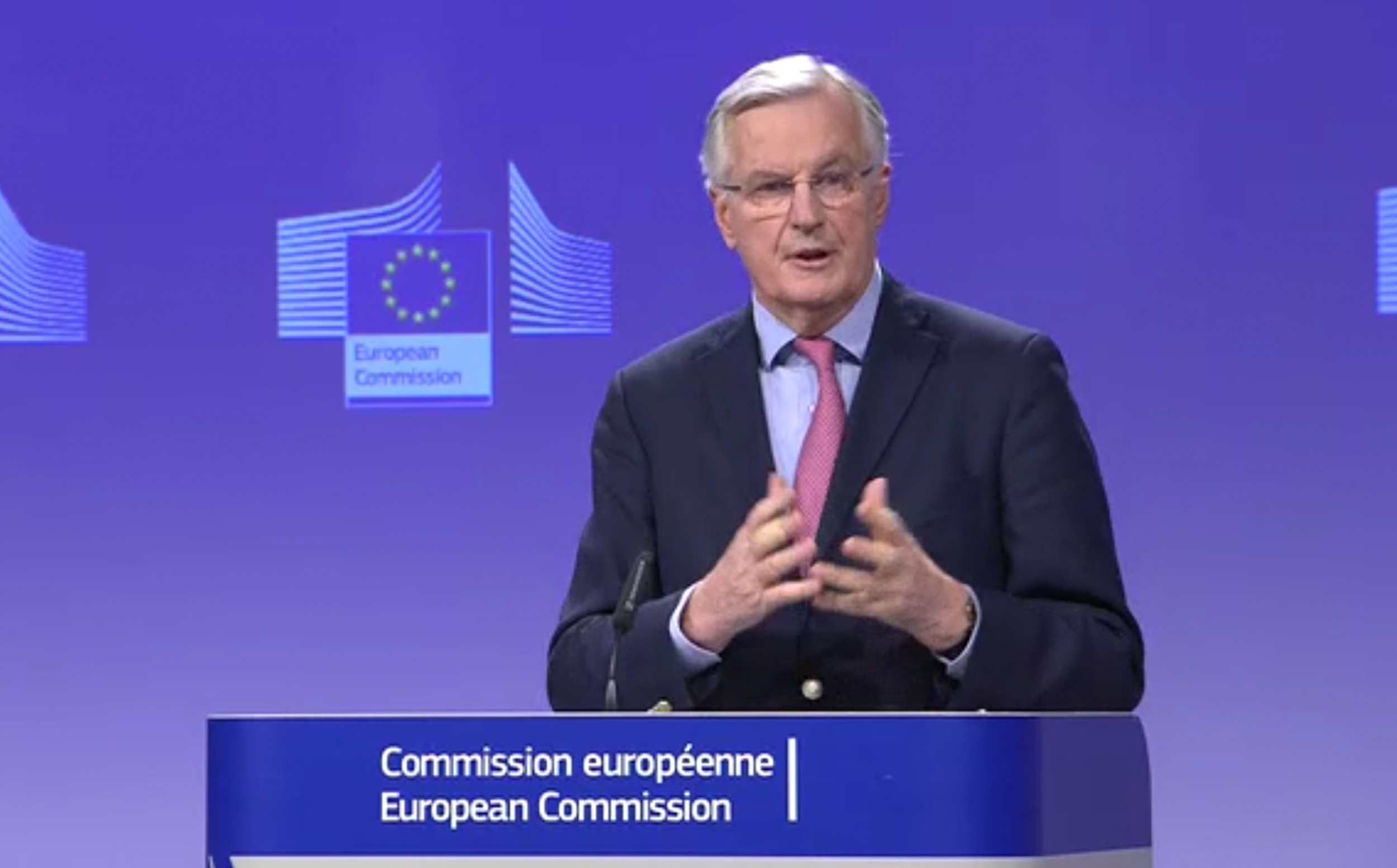Brexit: Relations between Britain and the EU sink to a new low as David Davis and Michel Barnier trade barbs
EU and UK sides collapse into mutual incomprehension
David Davis has been dragged into renewed war of words with Brussels over the Brexit transition period, accusing the EU of having a “fundamental contradiction” in its approach and wanting to “have it both ways” after a week of fruitless talks.
Relations between Britain and the European Commission sank to a new low on Friday after Michel Barnier, the EU’s chief negotiator, casually claimed at a press conference the UK had cancelled an important meeting due to a “diary clash”. UK officials behind the scenes took offence to the claim and said the meeting had not been cancelled at all and instead took place in the afternoon.
Mr Barnier sealed the state of mutual incomprehension, telling reporters in Brussels that he had “problems understanding the UK’s position” on the transition period.
In a statement issued on Friday afternoon after Mr Barnier’s press conference – a solo affair in contrast to previous joint outings – Mr Davis said the EU could not “have it both ways” on the transition period.
“Given the intense work that has taken place this week it is surprising to hear that Michel Barnier is unclear on the UK’s position in relation to the implementation period,” he said. “As I set out in a speech two weeks ago, we are seeking a time-limited period that maintains access to each other’s markets on existing terms.
“However for any such period to work both sides will need a way to resolve disputes in the unlikely event that they occur.
“But there is a fundamental contradiction in the approach the commission is taking. Today they acknowledged that a way to resolve disputes and infringements is needed. Yet at the same time they dismissed the UK’s push for reasonable safeguards to ensure our interests are protected. It is not possible to have it both ways.
“We must not lose sight of the ultimate aim here – to build a new comprehensive partnership between the UK and the EU that sees us stay as the closest of friends and allies. It is in that spirit that the UK continues to approach negotiations with the Commission.”
The European Commission’s chief negotiator had earlier told reporters that a transition period was “not a given” and that “there will undoubtedly be a problem” if the UK sticks to its guns.
The UK is at odds with Brussels in a number of areas: it has demanded a power to object to new rules imposed on it during the transition period, restrictions on the rights of EU citizens who come to Britain during the transition, and the ability to opt in to certain European policies.
The EU says its plan for the transition agreed by the 27 member states, which does not include these aspects, is “logical” and “non-negotiable”.

Mr Barnier told his press conference: “I have some problems understanding the UK’s position: they themselves asked for this transition period, the heads of state and government said yes on the basis of very logical conditions – because you’re keeping the single market, customs union, the economic status quo for a limited period, it’s understandable that we should keep the regulatory and supervision structure, the way rules are applied, it’s the integrity of the single market that’s at stake.
“If this disagreement should [continue to] exist there will undoubtedly be a problem. I hope that we will be able to resolve this disagreement in the next round.”

Turning to the issue is Ireland, he reiterated a warning that coming out of the customs union and single market made a hard border “unavoidable”. The chief negotiator said the “specific solution” on Ireland promised by the UK, or full regulatory alignment in Ireland could prevent such controls.
Both sides say they want to agree the transition period before the European Council meeting in March, giving them just under two months to make a deal on the issue.
Were a transition period to not be agreed, the UK would effectively crash out of the bloc without a deal in March 2019 – unless the negotiation period were extended by consent of all 27 EU countries, or Article 50 were revoked.
It is currently planned that the meat of the “future relationship” between the EU – effectively a trade agreement – would be negotiated during the transition period, meaning its absence would cause huge disruption for UK industry.
The transition period, which the Prime Minister requested in her Florence speech, was previously considered to be the most straightforward part of the Brexit process due to its simple nature. The UK has however raised objections with the EU’s proposals after Tory right-wingers raised objections to the idea, arguing that it would make the UK a temporary “vassal state” of Europe.
Labour’s Keir Starmer said it was vital for the Government to secure a transition period for the sake of the economy and said Mr Barnier’s comments “should be a wakeup call for the Prime Minister”.
Join our commenting forum
Join thought-provoking conversations, follow other Independent readers and see their replies
Comments
Bookmark popover
Removed from bookmarks